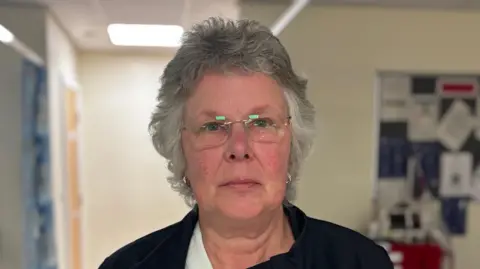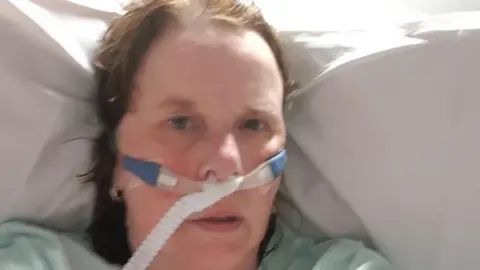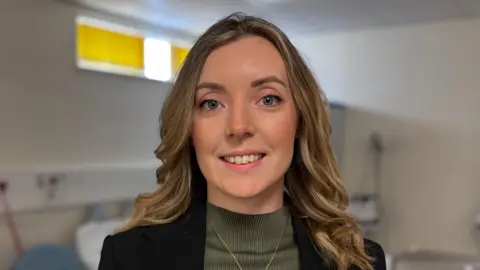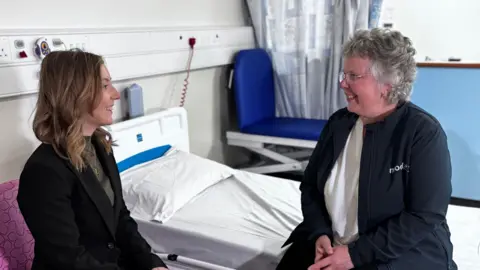'Long Covid clinical trial helped me return to work'
 BBC
BBCWhen Sharon Baker tested positive for Covid-19 three and a half years ago, she had little idea it would lead to an 18-day hospital stay and debilitating long-term symptoms.
The 64-year-old, from Rothley in Leicestershire, is one of an estimated two million people in the UK who are now living with "long Covid".
She said chronic symptoms, like intense fatigue, made it impossible for her to work, and even getting out of bed and walking became difficult.
However, she said taking part in a clinical research trial at Glenfield Hospital, in Leicester, had allowed her to get her life back while managing ongoing symptoms.
Mrs Baker, an office worker for an ultrasound company, was one of 181 patients involved in the study, which explored the effects exercise can have on their symptoms.
She took part in walking, cycling and strength-based training during an eight-week programme.
 Supplied
Supplied"I was so poorly with it, I was just scared wherever I went," she said.
"If anybody came near me, I was worried I might catch it again and getting back to day-to-day normal life was really restricting.
"I was so unfit. Just getting my fitness back was really hard because I'd been in bed for such a long time.
"I found the study really helpful because you'd be able to see how well you're doing and if your fitness was improving.
"It was about getting the mindset right, with the support from the group and the exercises, [and] knowing I was getting better, I was able to get back to work."
Experts said the study, which was carried out over two years, involved each individual being given a tailored plan depending on their own needs.
Dr Enya Daynes, senior specialist physiotherapist at the hospital, said the study found participating patients' fatigue had reduced and some people's immune systems had strengthened.
She said the project had involved face-to-face and online work.

Dr Daynes said: "We had an increase in exercise capacity in those that attended the face-to-face and digital rehab group, over and above what people in the control group would have.
"There was some signal that people were feeling better and less fatigued.
"We did some blood tests and we were able to show there was an improvement in their immune system."
Despite the success of the study, experts said it could be "years" before treatments for the cause of long Covid were found, and a lack of funding posed a risk to making medical breakthroughs.
Prof Rachael Evans, from the hospital's long Covid care centre, added: "We absolutely do our best using treatments that we know to help with symptoms but we still don't actually have treatments for the things that are really causing the long Covid, and that's what patients are absolutely desperate for.
"The light at the end of the tunnel would absolutely be if we had medical drug treatments to get rid of the symptoms altogether.
"I don't think we are close. We could have been a lot closer, which is the main issue, if we'd have had ongoing funding to do more research trials."

A spokesperson for the Department of Health and Social Care said: "We are committed to ensuring there are quality services across the country for people suffering with long Covid, which we know can have a debilitating impact on people's physical and mental health.
"No single treatment currently exists for the condition, which is why we are funding research into it."
Follow BBC Leicester on Facebook, on X, or on Instagram. Send your story ideas to [email protected] or via WhatsApp on 0808 100 2210.
